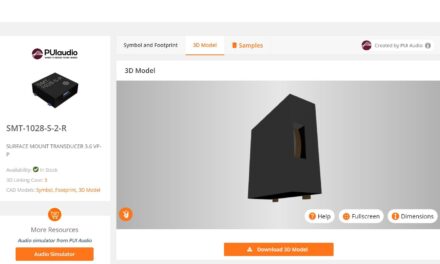 CMBlu Projekt AG and Schaeffler Technologies AG & Co. KG have announced the signing of a joint development agreement (JDA) to cooperate in the production of large-scale energy storage systems. Over the past five years, CMBlu – in collaboration with research groups from German universities – has developed the novel and renewable Organic Flow Storage Technology for power grids up to prototype scale. On this basis, Schaeffler and CMBlu will jointly develop and industrialise commercial products to be marketed by CMBlu. The goal of both partners is to make a substantial contribution to a secure, efficient and sustainable power supply worldwide.
CMBlu Projekt AG and Schaeffler Technologies AG & Co. KG have announced the signing of a joint development agreement (JDA) to cooperate in the production of large-scale energy storage systems. Over the past five years, CMBlu – in collaboration with research groups from German universities – has developed the novel and renewable Organic Flow Storage Technology for power grids up to prototype scale. On this basis, Schaeffler and CMBlu will jointly develop and industrialise commercial products to be marketed by CMBlu. The goal of both partners is to make a substantial contribution to a secure, efficient and sustainable power supply worldwide.
Organic Flow Batteries can be used flexibly as stationary energy storage units in the power grid and contribute to the balance between generation and consumption. The technology has diverse applications, for example in the intermediate storage of renewable energies or peak shaving in industrial plants. Another field of application is the charging infrastructure for electromobility. As buffer storage, the batteries contribute to the relief of medium-voltage grids, eliminating the need for upgrading due to additional loads. Ultimately, a decentralised charging infrastructure for electric vehicles will only be possible with powerful and scaleable energy storage systems, such as Organic Flow Batteries.
The underlying technology is similar to the principle of conventional redox flow batteries. The electrical energy is stored in chemical compounds, which form electrolytes in water solution. In contrast to conventional, metal-based systems, organic molecules derived from lignin are used for storage. Lignin can be found in every plant such as trees or grass. It is a naturally renewable source and is extracted in pulp and paper production as a waste product on a million-tonne scale. This ensures lignin as a permanently available raw material for large-scale energy storage systems.
All electrotechnical components in the energy converter have been adapted to these electrolytes and improved for cost-effective mass production. The entire value chain of the batteries can be realised locally. There are no import dependencies on individual countries. In addition, Organic Flow Battery Systems do not use rare earths or heavy metals, are non-flammable and so can be operated very safely. Due to their operating principle, the capacity of Organic Flow Systems can be scaled up independently of the electrical power and is limited only by the size of the storage tanks and the amount of electrolyte.
“Nature has evolved very efficient and safe methods of storing energy over billions of years. We are very proud to be able to apply this principle to large-scale energy storage systems. For this purpose, we use unlimited, renewable resources. Therefore, we can enable very large and cost-efficient energy storage systems. With Schaeffler, we have gained an international, experienced partner for industrialisation and production of our systems in order to master the global challenges against the background of the energy transition,” says Dr. Peter Geigle, CEO of CMBlu.
“We are very pleased that we can participate with our expertise in the field of coating technology and mass production in the highly interesting future field of stationary energy storage of CMBlu. With this cooperation, Schaeffler establishes itself in another innovative field of technology. The planned large-scale storage systems fit perfectly into our ‘Mobility for Tomorrow’ strategy, in which we are considering the entire energy chain and offering solutions,” says Prof. Dr.-Ing. Peter Gutzmer, Deputy CEO and CTO of Schaeffler.
For industrialisation, CMBlu has entered into a long-term cooperation agreement with Schaeffler for the development of large-scale energy storage systems with the aim of providing market-ready products. In the next step CMBlu will establish the full supply chain, including all pre-products with other industry partners. In addition, a prototype production facility was set up in Alzenau. CMBlu has already signed contracts with reference customers to implement selected pilot projects over the next two years. As of 2021, the first commercial systems are planned.


